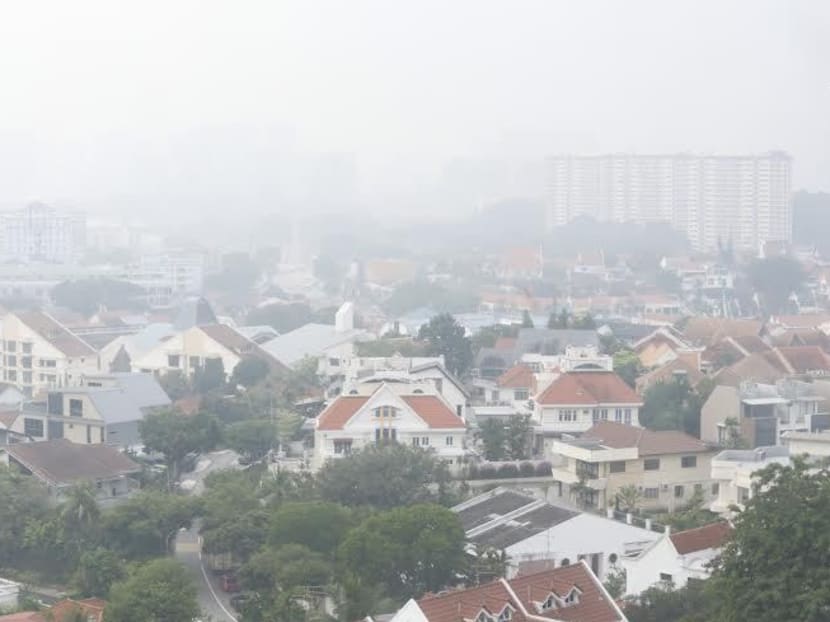Air quality expected to remain unhealthy on Wednesday
SINGAPORE — Hazy conditions can be expected tomorrow (Oct 7) with air quality remaining in the unhealthy range, said the National Environment Agency (NEA) this evening.
SINGAPORE — Hazy conditions can be expected tomorrow (Oct 7) with air quality remaining in the unhealthy range, said the National Environment Agency (NEA) this evening.
The prevailing winds are forecast to be weak and blow from the east or south-east, said the NEA. The 24-hr Pollutant Standards Index (PSI) for the next 24 hours is expected to be in the mid to high sections of the unhealthy range, and may drop gradually to the low end of the unhealthy range if less dense haze is blown in.
Visibility is expected to remain poor particularly in the morning, and improve gradually through the day if the haze situation eases, said the NEA.
The agency said that widespread haze is persisting in parts of central and southern Sumatra, and haze spreading from Kalimantan is still observed over the sea areas south of Singapore.
The 24-hour PSI was in the mid to high sections of the unhealthy range today, as haze from Kalimantan continued to spread westward to the surrounding region. As at 8pm today, the 24-hr PSI was 135-170, while the three-hour PSI was 128. The 1-hr PM2.5 was 65-115 µg/m3.
Partial satellite pass and cloud cover meant only eight hotspots were detected in Sumatra today.
Given the air quality forecast for the next 24 hours, the NEA said healthy persons should reduce prolonged or strenuous outdoor physical exertion. The elderly, pregnant women and children should minimise prolonged or strenuous outdoor physical exertion, while those with chronic lung or heart disease should avoid prolonged or strenuous outdoor physical exertion. Persons who are not feeling well, especially the elderly and children, and those with chronic heart or lung conditions, should seek medical attention.







